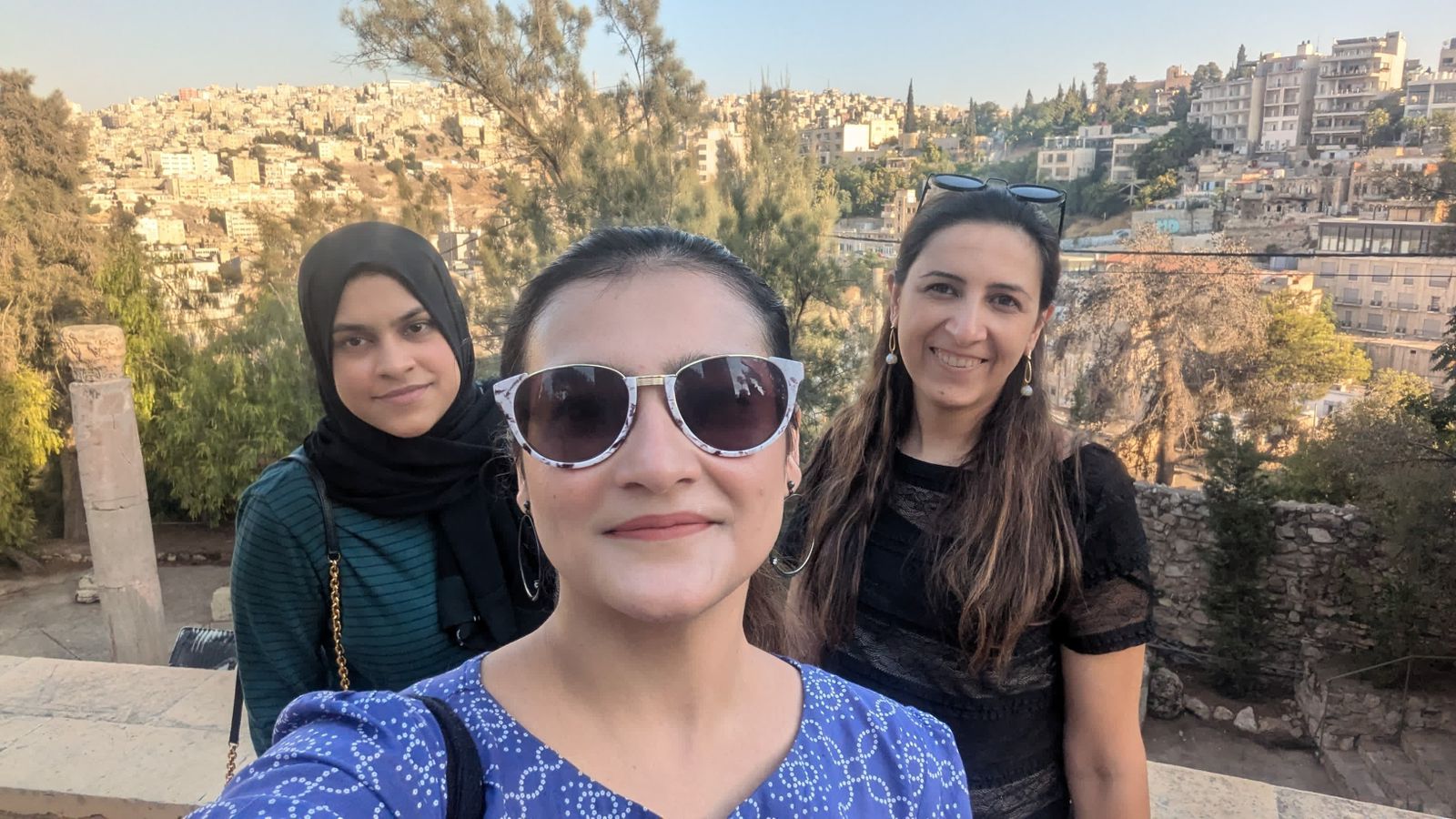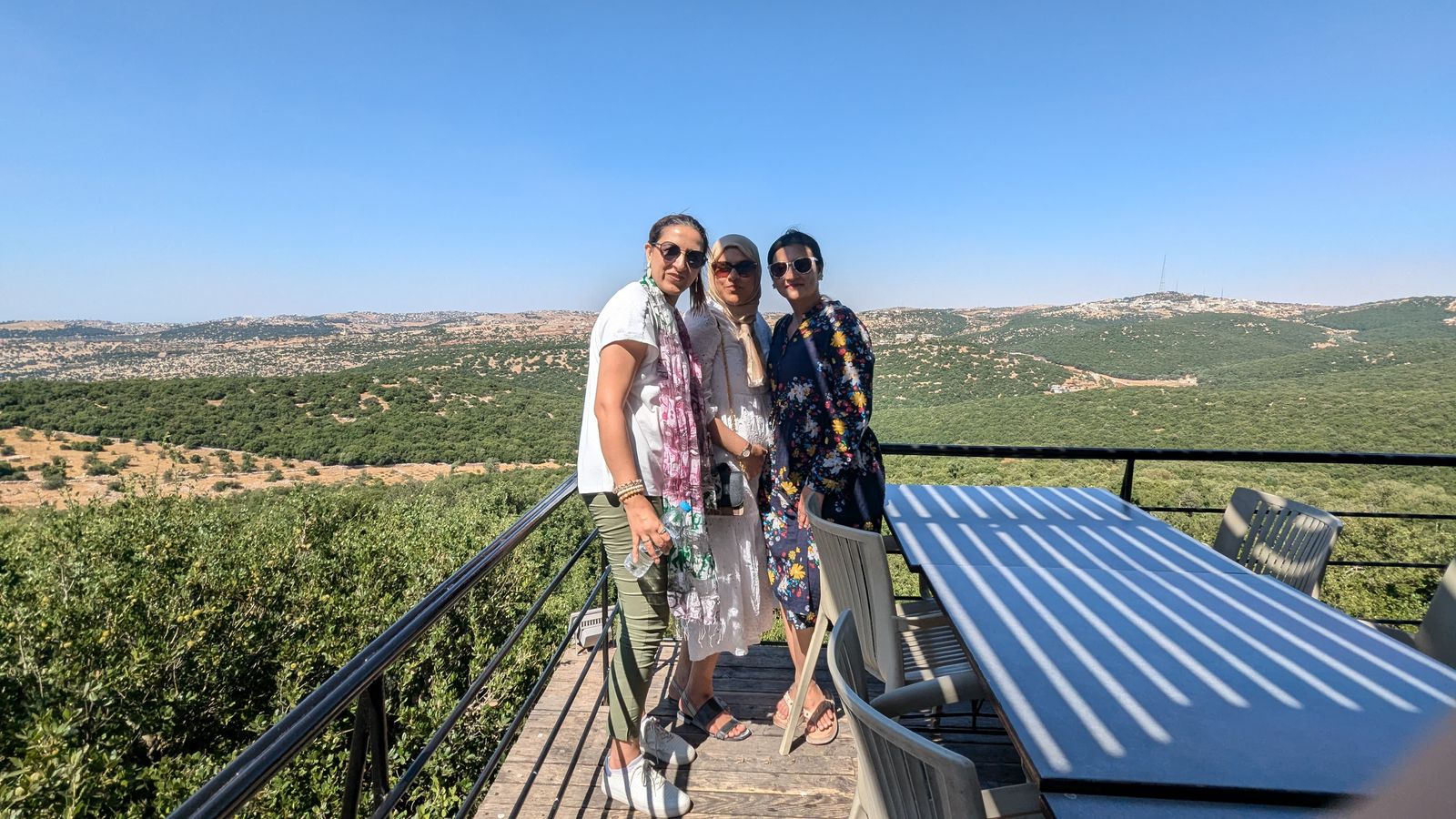.
Mental
Intellectual Humility Quiz | Greater Good
Intellectual Humility Quiz | Greater Good
01/01/2025
8 min read




Intellectual Humility Quiz | Greater Good
### The Power of Intellectual Humility: Lessons Learned from Visiting My Friends from Pakistan
Are you ready to admit when you don't know something? Or do you become defensive when someone questions your beliefs?
Do we share similar customs and traditions with other peoples, whether in marriage, dining, or clothing? When we differ, can we accept and respect each other, or does it lead to conflict and strife?
Intellectual Humility Quiz | Greater Good
### The Power of Intellectual Humility: Lessons Learned from Visiting My Friends from Pakistan
Are you ready to admit when you don't know something? Or do you become defensive when someone questions your beliefs?
Do we share similar customs and traditions with other peoples, whether in marriage, dining, or clothing? When we differ, can we accept and respect each other, or does it lead to conflict and strife?
Intellectual Humility Quiz | Greater Good
### The Power of Intellectual Humility: Lessons Learned from Visiting My Friends from Pakistan
Are you ready to admit when you don't know something? Or do you become defensive when someone questions your beliefs?
Do we share similar customs and traditions with other peoples, whether in marriage, dining, or clothing? When we differ, can we accept and respect each other, or does it lead to conflict and strife?
Intellectual Humility Quiz | Greater Good
### The Power of Intellectual Humility: Lessons Learned from Visiting My Friends from Pakistan
Are you ready to admit when you don't know something? Or do you become defensive when someone questions your beliefs?
Do we share similar customs and traditions with other peoples, whether in marriage, dining, or clothing? When we differ, can we accept and respect each other, or does it lead to conflict and strife?
These questions came to mind when I hosted two friends from Pakistan. My knowledge about Pakistan was limited, and the stereotypes we hold can make us judge others without really knowing them. The only way to truly understand others is through communication and intellectual humility, which many researchers have discussed. They say intellectual humility revolves around recognizing the limits of your knowledge and beliefs, listening to others' experiences, and considering their perspectives and beliefs.
I remembered studying this in our cultural and historical narratives at school. Years later, I recalled the story of Al-Ghazali, the well-known philosopher from the Islamic Golden Age. Al-Ghazali spent much of his life on a journey of spiritual and intellectual reform, famously stating, "Truth never fears freedom... only distortion, ignorance, and injustice without right do."
These questions came to mind when I hosted two friends from Pakistan. My knowledge about Pakistan was limited, and the stereotypes we hold can make us judge others without really knowing them. The only way to truly understand others is through communication and intellectual humility, which many researchers have discussed. They say intellectual humility revolves around recognizing the limits of your knowledge and beliefs, listening to others' experiences, and considering their perspectives and beliefs.
I remembered studying this in our cultural and historical narratives at school. Years later, I recalled the story of Al-Ghazali, the well-known philosopher from the Islamic Golden Age. Al-Ghazali spent much of his life on a journey of spiritual and intellectual reform, famously stating, "Truth never fears freedom... only distortion, ignorance, and injustice without right do."
These questions came to mind when I hosted two friends from Pakistan. My knowledge about Pakistan was limited, and the stereotypes we hold can make us judge others without really knowing them. The only way to truly understand others is through communication and intellectual humility, which many researchers have discussed. They say intellectual humility revolves around recognizing the limits of your knowledge and beliefs, listening to others' experiences, and considering their perspectives and beliefs.
I remembered studying this in our cultural and historical narratives at school. Years later, I recalled the story of Al-Ghazali, the well-known philosopher from the Islamic Golden Age. Al-Ghazali spent much of his life on a journey of spiritual and intellectual reform, famously stating, "Truth never fears freedom... only distortion, ignorance, and injustice without right do."
These questions came to mind when I hosted two friends from Pakistan. My knowledge about Pakistan was limited, and the stereotypes we hold can make us judge others without really knowing them. The only way to truly understand others is through communication and intellectual humility, which many researchers have discussed. They say intellectual humility revolves around recognizing the limits of your knowledge and beliefs, listening to others' experiences, and considering their perspectives and beliefs.
I remembered studying this in our cultural and historical narratives at school. Years later, I recalled the story of Al-Ghazali, the well-known philosopher from the Islamic Golden Age. Al-Ghazali spent much of his life on a journey of spiritual and intellectual reform, famously stating, "Truth never fears freedom... only distortion, ignorance, and injustice without right do."




In the three days I spent with my friends touring Jordan, practicing intellectual humility helped me learn new things and sparked my curiosity to discover more about Pakistan, its beauty, and the hospitality of its people. I learned about their attire, the high educational attainment of many women, who obtain advanced degrees and work in various countries around the world. I also discovered that goat is a favored dish and that their spices differ from those used in India. Initially hesitant to ask certain questions, I felt comfortable with my friends and inquired about their religion, education, and marriage customs. The most amusing and thought-provoking revelation was that wedding celebrations can last a week, with numerous feasts and guests, to the extent that when looking at wedding photos and videos, one might not recognize many attendees who came to share in the joy and food.
This experience demonstrated that intellectual humility and exchange can strengthen your relationships and help you build bridges with diverse groups of people, a skill we need now more than ever. In a time of intense political polarization, intergroup differences, and resurgent discrimination based on race, gender, and religion, intellectual humility may offer a constructive path to understanding and discovering others.
In the three days I spent with my friends touring Jordan, practicing intellectual humility helped me learn new things and sparked my curiosity to discover more about Pakistan, its beauty, and the hospitality of its people. I learned about their attire, the high educational attainment of many women, who obtain advanced degrees and work in various countries around the world. I also discovered that goat is a favored dish and that their spices differ from those used in India. Initially hesitant to ask certain questions, I felt comfortable with my friends and inquired about their religion, education, and marriage customs. The most amusing and thought-provoking revelation was that wedding celebrations can last a week, with numerous feasts and guests, to the extent that when looking at wedding photos and videos, one might not recognize many attendees who came to share in the joy and food.
This experience demonstrated that intellectual humility and exchange can strengthen your relationships and help you build bridges with diverse groups of people, a skill we need now more than ever. In a time of intense political polarization, intergroup differences, and resurgent discrimination based on race, gender, and religion, intellectual humility may offer a constructive path to understanding and discovering others.
In the three days I spent with my friends touring Jordan, practicing intellectual humility helped me learn new things and sparked my curiosity to discover more about Pakistan, its beauty, and the hospitality of its people. I learned about their attire, the high educational attainment of many women, who obtain advanced degrees and work in various countries around the world. I also discovered that goat is a favored dish and that their spices differ from those used in India. Initially hesitant to ask certain questions, I felt comfortable with my friends and inquired about their religion, education, and marriage customs. The most amusing and thought-provoking revelation was that wedding celebrations can last a week, with numerous feasts and guests, to the extent that when looking at wedding photos and videos, one might not recognize many attendees who came to share in the joy and food.
This experience demonstrated that intellectual humility and exchange can strengthen your relationships and help you build bridges with diverse groups of people, a skill we need now more than ever. In a time of intense political polarization, intergroup differences, and resurgent discrimination based on race, gender, and religion, intellectual humility may offer a constructive path to understanding and discovering others.
In the three days I spent with my friends touring Jordan, practicing intellectual humility helped me learn new things and sparked my curiosity to discover more about Pakistan, its beauty, and the hospitality of its people. I learned about their attire, the high educational attainment of many women, who obtain advanced degrees and work in various countries around the world. I also discovered that goat is a favored dish and that their spices differ from those used in India. Initially hesitant to ask certain questions, I felt comfortable with my friends and inquired about their religion, education, and marriage customs. The most amusing and thought-provoking revelation was that wedding celebrations can last a week, with numerous feasts and guests, to the extent that when looking at wedding photos and videos, one might not recognize many attendees who came to share in the joy and food.
This experience demonstrated that intellectual humility and exchange can strengthen your relationships and help you build bridges with diverse groups of people, a skill we need now more than ever. In a time of intense political polarization, intergroup differences, and resurgent discrimination based on race, gender, and religion, intellectual humility may offer a constructive path to understanding and discovering others.
When I came across the intellectual humility quiz, memories of every friend or person I met in various places or events, every conversation or conflict we had, flashed through my mind. If you wish, you can take the quiz as well. There's no right or wrong, but it provides an opportunity to reflect and explore our intellectual humility amid globalization, hidden truths, prejudices, and lack of justice.
Today, I see this insight as an invitation to think about how intellectual humility can enrich our lives and communities. As we navigate the complexities of modern life, self-centeredness, and judgment of others, I am planning a visit to Pakistan. I'm intrigued by many stories and the simplicity of life there, which I find inspiring.
When I came across the intellectual humility quiz, memories of every friend or person I met in various places or events, every conversation or conflict we had, flashed through my mind. If you wish, you can take the quiz as well. There's no right or wrong, but it provides an opportunity to reflect and explore our intellectual humility amid globalization, hidden truths, prejudices, and lack of justice.
Today, I see this insight as an invitation to think about how intellectual humility can enrich our lives and communities. As we navigate the complexities of modern life, self-centeredness, and judgment of others, I am planning a visit to Pakistan. I'm intrigued by many stories and the simplicity of life there, which I find inspiring.
When I came across the intellectual humility quiz, memories of every friend or person I met in various places or events, every conversation or conflict we had, flashed through my mind. If you wish, you can take the quiz as well. There's no right or wrong, but it provides an opportunity to reflect and explore our intellectual humility amid globalization, hidden truths, prejudices, and lack of justice.
Today, I see this insight as an invitation to think about how intellectual humility can enrich our lives and communities. As we navigate the complexities of modern life, self-centeredness, and judgment of others, I am planning a visit to Pakistan. I'm intrigued by many stories and the simplicity of life there, which I find inspiring.
When I came across the intellectual humility quiz, memories of every friend or person I met in various places or events, every conversation or conflict we had, flashed through my mind. If you wish, you can take the quiz as well. There's no right or wrong, but it provides an opportunity to reflect and explore our intellectual humility amid globalization, hidden truths, prejudices, and lack of justice.
Today, I see this insight as an invitation to think about how intellectual humility can enrich our lives and communities. As we navigate the complexities of modern life, self-centeredness, and judgment of others, I am planning a visit to Pakistan. I'm intrigued by many stories and the simplicity of life there, which I find inspiring.
